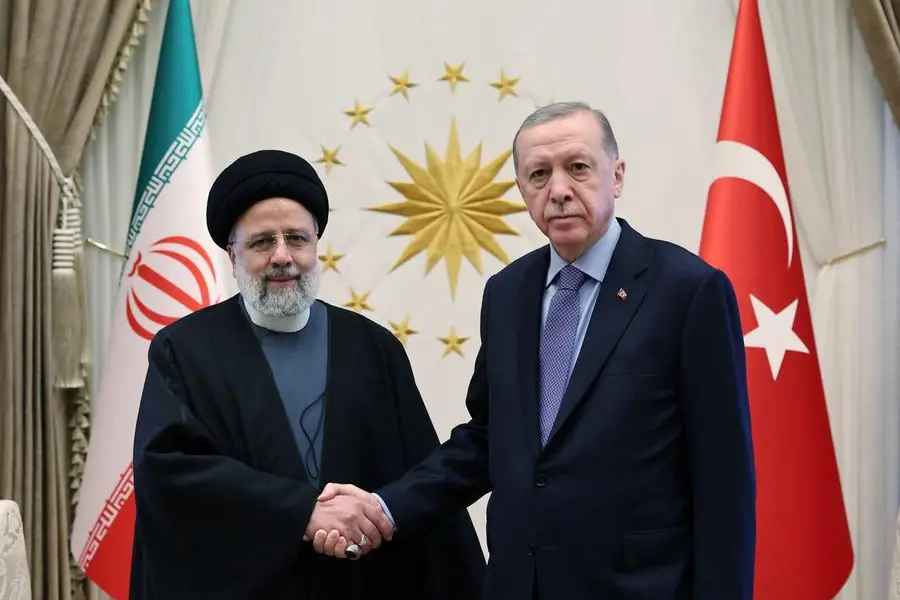PHOTO
Iranian President Ebrahim Raisi was set to hold talks with his Turkish counterpart Tayyip Erdogan in Ankara on Wednesday to discuss the widening conflict in Gaza and energy cooperation between the two neighbours.
Raisi had twice postponed his visit, initially set for November, over scheduling issues and attacks in Iran's southeastern city of Kerman.
"During the meetings, aside from bilateral ties, there will be an exchange of views on current regional and global matters, namely the Israeli attacks on Gaza and the occupied Palestinian territories," Turkey's presidency said on Tuesday.
It said the two leaders would also chair a Turkish-Iranian business council and that some agreements could be signed, while Energy Minister Alparslan Bayraktar said he had discussed energy cooperation with Iranian Oil Minister Javad Owji during talks in Ankara on Tuesday.
"We stated that our cooperation in the natural gas field in particular needs to be evaluated in a wider framework," he said on X.
Turkey, which supports a two-state solution to the decades-old Israeli-Palestinian conflict, has harshly criticised Israel for its attacks on Gaza, called for an immediate ceasefire, and backed legal steps for Israel to be tried for genocide.
Despite its harsh rhetoric, Ankara has maintained commercial ties with Israel, prompting criticism at home and from Iran.
Unlike its Western allies and some Arab nations, NATO member Turkey does not consider Palestinian militant group Hamas, whose Oct. 7 attack on Israel led to the retaliatory campaign on Gaza, a terrorist group.
Iran leads what it calls the Axis of Resistance, a loose coalition that includes Hamas and armed Shi'ite Muslim groups around the region that have militarily confronted Israel and its Western allies. It has voiced support for Hamas.
In a sign of the conflict widening, U.S. and British strikes hit Iran-backed Houthi targets in Yemen this month, in response for attacks on Red Sea shipping. Erdogan slammed the strikes as a disproportionate use of force.
Turkish Foreign Minister Hakan Fidan also said last week he had spoken to his Iranian and Pakistani counterparts after the neighbours traded cross-border fire, and called for calm.
Turkey and Iran have usually had complicated ties, standing at odds over a host of issues, primarily the Syrian civil war.
Ankara has backed rebels looking to oust President Bashar al-Assad and mounted several incursions into northern Syria against militants, while Tehran supports his government. Turkey has recently taken steps to improve ties with Damascus.
(Reporting by Tuvan Gumrukcu; Editing by Daren Butler, William Maclean)





















